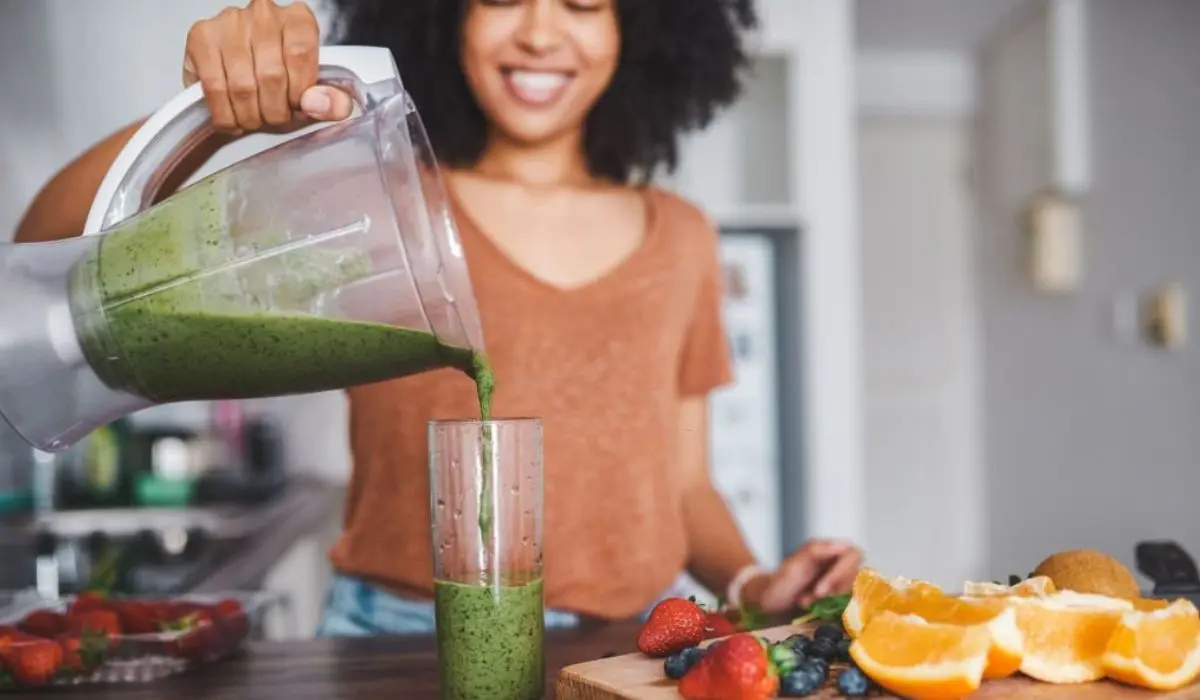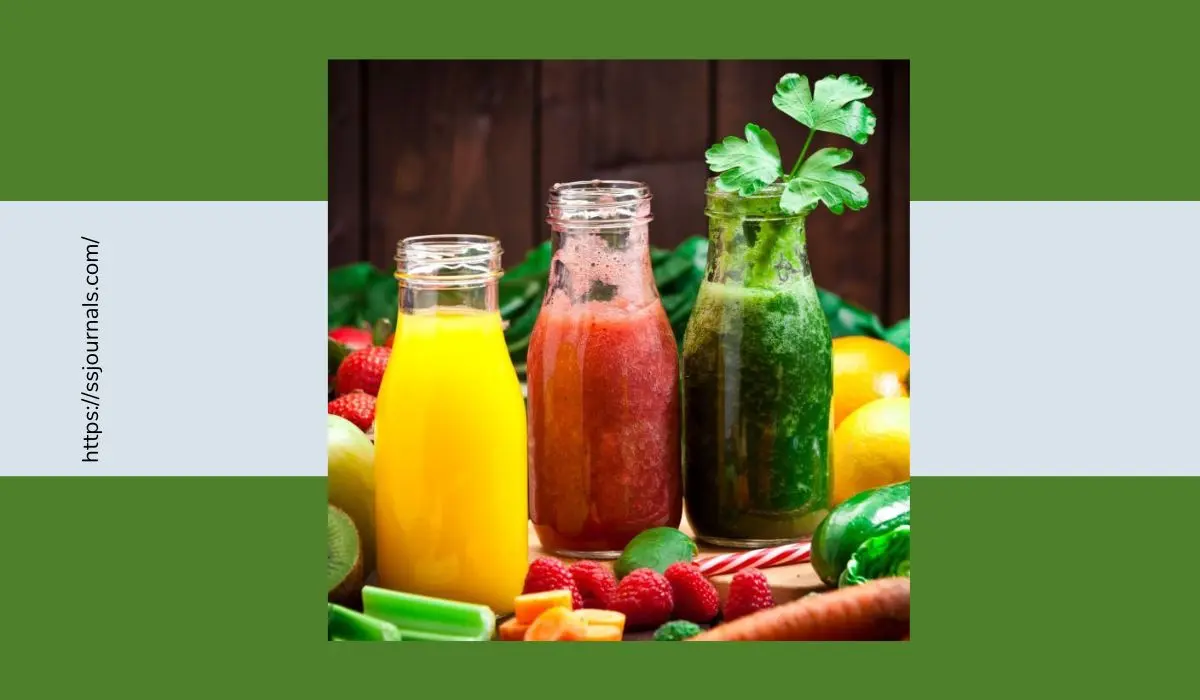Juicing fresh fruits and vegetables can be an enjoyable way to increase vitamin, mineral, and antioxidant intake for everyone, including those with diabetes. With the right produce choices and precautions, diabetics can safely add some nutrient-packed juices into their diet.
This article explores the top juice ingredients that offer nutritional benefits without spiking blood sugar.
You’ll learn how juicing can fit into a diabetic meal plan and what potential drawbacks to look out for. We’ve also included a juicing guide with 6 wholesome juice recipes made diabetes-friendly.
What Are The Best Juices For Diabetics?
Juicing removes fiber-rich pulp from produce, concentrating the juices into an easily absorbed yet nutrient-dense beverage. The key for diabetics is choosing low sugar fruits and vegetables.

Some smart juicing options include leafy greens, cucumber, celery, cruciferous veggies, citrus fruits, berries, tomatoes, and tart cherries. These provide antioxidants, vitamins, minerals, and polyphenols that protect health.
Let’s discuss how juicing could benefit those living with diabetes when done carefully. We’ll also cover some best practices.
Potential Benefits Of Juicing For Diabetes Management
Here are some of the top reasons juicing vegetables and specific fruits may support diabetics:
Increased hydration
Quenching thirst and preventing dehydration are key for diabetics. Juice offers hydration without the added sugars found in sodas and sports drinks.
Blood sugar regulation
Non-starchy veggies have minimal impact on blood glucose. Some fruits provide polyphenols that support insulin and glucose function.
Reduced inflammation
Fresh juices deliver potent antioxidants and phytochemicals that can lower inflammation linked to diabetes complications.
Natural energy boost
Juices offer vital nutrients like vitamin C, magnesium, and potassium for sustained, non-jittery energy without caffeine.
Higher produce intake
Juicing makes it easier to obtain the 7-10 or more recommended produce servings per day.
Support for weight goals
The fiber removed makes juices low calorie for managing weight; nutrients support fat burning.
Improved hydration
The high water content in produce juices hydrates the body to manage thirst and reduce sugar cravings.
Related: Feeling Sleepy After Eating – Is It Early Warning Sign Of Diabetes?
Now let’s discuss how to juice in a diabetes-friendly way.
Tips For Juicing With Diabetes
Follow these best practices when using juices to manage diabetes:
– Focus on mostly non-starchy vegetables to avoid blood sugar spikes from sugars.
– Always pair juice with protein, fat, fiber, or whole food to blunt absorption.
– Stick to small 4-8 oz portion sizes, avoiding mega juices.
– Add ginger, cinnamon, or lemon which may help moderate glucose response.
– Check your blood sugar an hour after drinking juice to identify well-tolerated options.
– Avoid juicing fruit alone – always mix with veggies.
– Consume juices with meals or as snacks, not on an empty stomach.
– Select produce low on the glycemic index like berries and citrus fruits.
Now let’s look at some specific healthy ingredients to enjoy in diabetes-friendly juices.
6 Best Juice Ingredients For Diabetics
These are some of the top components that make great diabetic juice options:
Leafy greens
Choices like kale, spinach, chard, and lettuce provide antioxidants, calcium, potassium, and magnesium with minimal carbs and sugar.
Cucumber
This hydrating veggie is low carb with nutrients like vitamin K, potassium, and manganese. The peel provides fiber.
Carrots
Moderate in carbs, carrots offer beta-carotene, vitamin K, potassium, and antioxidants.
Celery
Composed mostly of water, celery hydrates with vitamins C, K, and folate.
Tomatoes
Provide essential nutrients like potassium, vitamin C, and lycopene with a low glycemic load.
Berries
Lower-sugar fruits like raspberries, blackberries, and strawberries provide antioxidants to help manage diabetes.
6 Diabetic-Friendly Juice Recipes
Try these recipes to take advantage of healthy produce in juices:
➜ Green Beauty Juice – Cucumber, kale, celery, lemon, ginger
➜ Purple Power Juice – Carrots, beets, blueberries, spinach
➜ Tropical Twist Juice – Cucumber, strawberries, orange, lemon, mint
➜ Tomato Zinger Juice – Tomatoes, carrots, bell pepper, basil
➜ Green Zing Juice – Cucumber, celery, kale, lime, ginger
➜ Red Revitalizer Juice – Tomatoes, carrots, raspberries, lemon
Top with a handful of nuts or seeds and pair with a hardboiled egg for a balanced snack.
Juicing Precautions For Those With Diabetes
While juicing can fit into diabetes nutrition, be mindful that:
➜ Fiber is removed, concentrating carbs and sugars
➜ Portions still impact blood glucose; 4-8oz is recommended
➜ Most fruits spike blood sugar rapidly due to fructose
➜ Juices digest extremely quickly compared to whole foods
➜ Nutrients from produce are beneficial, but juices shouldn’t replace meals
With proper precautions and produce choices, juicing can add great flavor and nutrition. But whole fruits and veggies should still form the foundation of your diet.
Conclusion
Enjoying vegetable juices and specific lower-sugar fruits like berries can provide a boost of antioxidants, hydration, and important nutrients for those with diabetes.
Just be mindful of portions, and ingredients, and pair juices with fiber, protein, and healthy fats for balanced nutrition and blood sugar management.
Make juices full of leafy greens, cucumber, celery, and carrots your go-tos. With some caution, juicing can be a tasty adjunctive part of your meal plan as a diabetic.
FAQs
Still, have questions about juicing with diabetes? Here are some frequently asked questions:
Fruit juice spikes blood sugar rapidly, so it’s best limited. Opt for low sugar fruits like berries.
Yes, non-starchy veggies offer hydration and nutrients without blood sugar impact.
Juices lack protein and fiber, so they cannot fully replace balanced meals. Enjoy juices alongside meals.
Smoothies retain fiber, giving more balanced nutrition. But juices offer great convenience.
Yes, focusing on veggies and low glycemic fruits can support blood sugar regulation.

